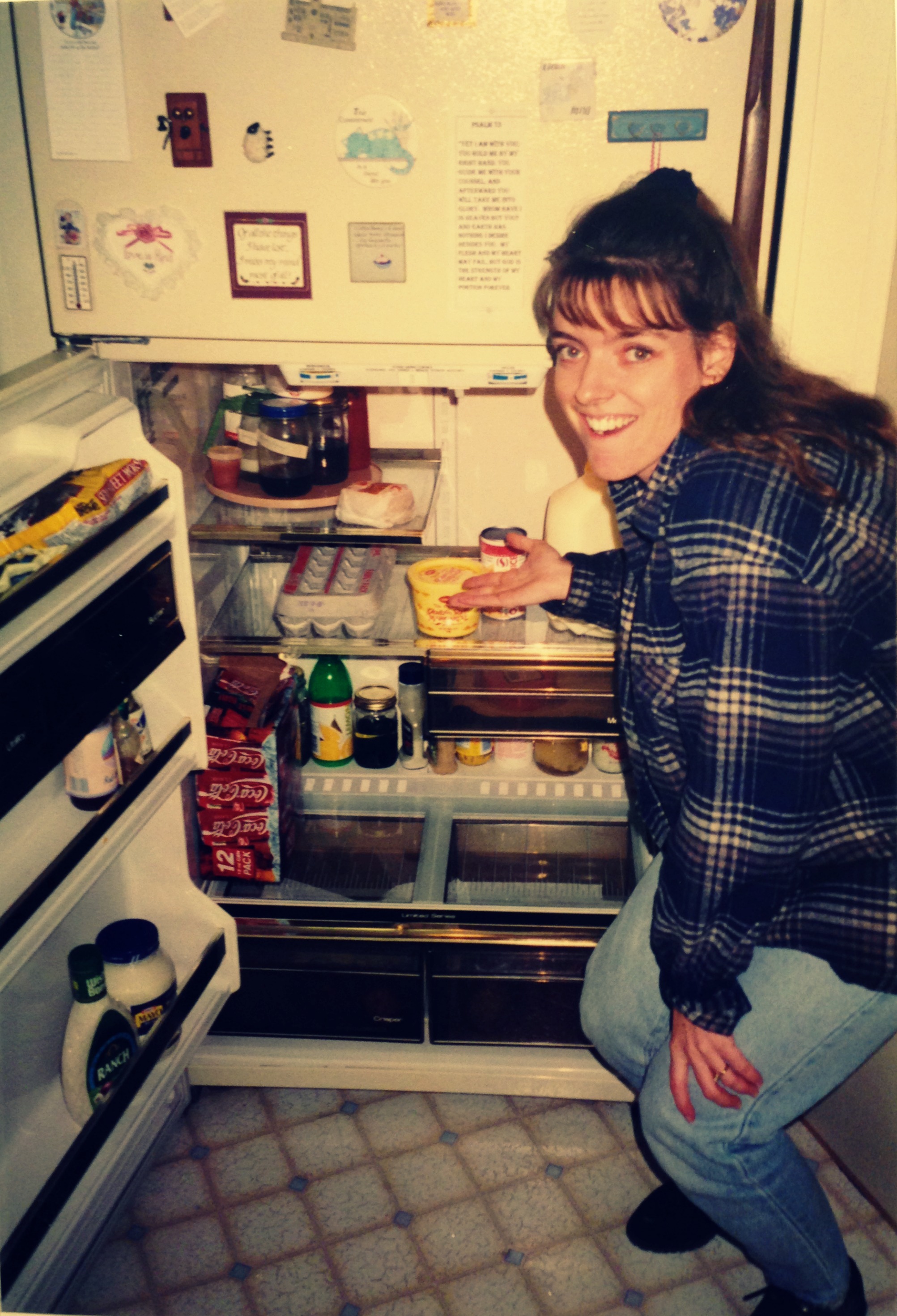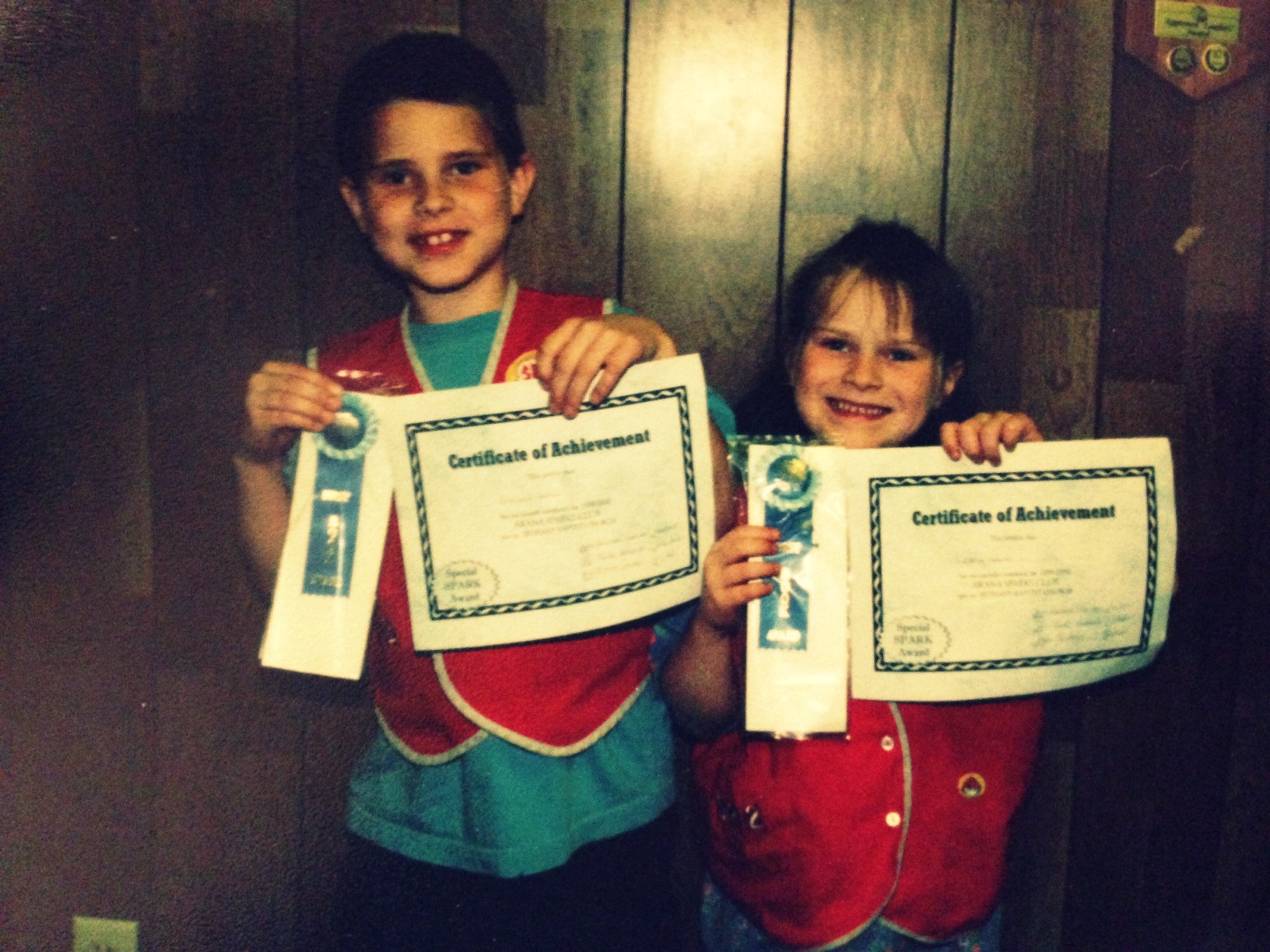Practical Orphans
joeacast
Two weeks after our wedding ceremony, Traci and I packed up my little blue pick up truck and drove the four hours from Salem to Seattle, where we began our first real jobs together. I started as youth pastor at Bethany Baptist Church in Kenmore, WA and Traci began teaching in a nearby Christian school. The honeymoon was over and we were off and running.
After spending the first five months of our married lives in the home of some Texas snow birders, we found a little apartment about one mile from their house and set up our first home. It was such a fun period of life where we owned next-to-nothing, barely had enough furniture to have guests over and we could actually fit all of our earthly belongings into my 1987 Toyota pick up.
It also didn’t take long before we were fully immersed into the work of youth ministry as we were fully embraced by our new church family. Our new home was set up, our new jobs were becoming normal and our life as a married couple was beginning to develop habits and patterns that would stay with us for the next 17 years...and we had no clue what we were doing!
About six months into our ministry in that Seattle church, we had a significant crisis hit the church. By God’s grace and with His help, our pastor navigated the crises masterfully and our church bonded together in such a special and powerful way. Our students drew closer together and also began to worry about the spiritual condition of their friends. By the nine month mark in ministry, our little youth group of 20 high school and junior high students had grown to over 40, and most of those new teens had never set foot in church.
We loved hanging out with those students. They asked unfettered questions (like, “will I go to hell if I smoke marijuana?”) and spoke their minds freely (“I thought you [speaking to me] were going to be wearing a robe and one of those white collars...you dress kind of normal for a pastor”) as they wrestled with the new things they were learning. But it was during this time that Traci and I became keenly aware of a type of teenager we had not known before; one Traci and I would soon be calling the “Practical Orphan.”
Practical Orphans aren’t orphans in the true sense of the word. Usually they are still living with both of their parents, or at least one bio-parent and one step-parent. But Practical Orphans have no connection with their home. They aren’t orphans, per se, but practically, they live like it. Their homes are places for food and shelter, sometimes, but they spend as much time as possible away from their family. Often they try to medicate with drugs and alcohol, pornography and sexual pleasure or with busyness and activity. They try to make life as “fun” as possible so that they don’t have to face the realities they live in.
In our apartment complex we found two young children who were also Practical Orphans. The first time we met Michael and Tiffany they were riding bikes in the very busy, very crammed, parking lot of our apartment complex. Their mom was Traci’s age, but she was very uninvolved with them. There wasn’t much space for kids to play, and they couldn’t use the pool without mom’s supervision, so it wasn’t long before Traci and I had became their favorite playmates. I still remember the laugh Traci and I had the first time the kids came over, knocked on our door, and asked if we were available to play.
Soon they would come to our apartment for snacks, we would occasionally take them to the pool and it wasn’t long before their mom gave us permission to take them with us to church on Sunday morning and wednesday night (for our children’s program). They loved church, and responded well to the love that was freely shown to them.
As a single mom, “Heather” had a lot on her plate and she wasn’t handling it well. She often yelled at the kids, constantly referred to them as a burden and struggle, often while they were standing right there. We tried to get her to church, too, but she was more-than-happy to let us take the kids off her hands so she could be without the parenting stress they created. We found Michael and Tiffany to be a joy, and in fact, when we moved away, we were heart-broken to be leaving them behind. We learned that they continued to attend church thanks to the effort of another church family, but after a couple of years, we lost track of them. They were, the first Practical Orphans that had touched our lives.
During that same season, however, we began to engage others in the same situation. Eric was a young man who was basically living on his own at age 17. His family situation was brutal, and he came to church with one of our other students. Eric always reeked of cigarette smoke, he wore one of two heavy metal band shirts every day, and was barely hanging on at school.
After his junior year of high school, he was kicked out of his house for getting into a fist fight with his drunk step-dad. He managed to get about half-way through his senior year when his mom announced she was getting a divorce and moving away. Eric didn’t want to move, all his friendships were in the Seattle area, and living with his mom wasn’t the safest environment for him -- she too was an alcoholic. So Eric was couch surfing at the house of friends trying to make it to graduation.
He had been coming to youth group for a while, and Traci and I couldn’t bear to have him living like that, so we took him for the final four months of high school. It was a tough experiment for all of us but we wouldn’t change it for anything. We taught Eric how to take care of himself, how to wash his clothes, how to do homework on a computer, how to study how to manage money and what it meant for him to have a relationship with God. We loved on him and helped create conversations and solutions to his addiction to pornography as well as some substance abuse issues springing up in his own life.
We celebrated his graduation, and grieved his departure soon after. But like Michael and Tiffany, Eric had left an impression on our hearts.
To this day, Traci and I have tried to love on students who needed a little extra encouragement. Sometimes their families were just going through a hard time, sometimes they had parents who traveled and they were home alone, sometimes they were abandoned and sometimes they just needed a place to think about things differently. The names and faces of these children are woven into our married history almost as much as our own kids; these Practical Orphans have changed our lives.
James 1:27 says this: “Religion that is pure and undefiled before God, the Father, is this: to visit orphans and widows in their affliction...” In this passage, James in contrasting the difference between religion that leads to self-righteousness, and religion that is pleasing to God. On the one hand, people think they are “good with God” because they are religious, that is, they practice doing religious things. But James is pointing out that religious things that don’t change how you speak (26) how you live (21-25) or how you view the hurting people around you (27) are worthless. In other words, having a relationship with God should make your religious practices very tangible and real.
For Traci and I, this has meant loving on the Practical Orphans that God has put in our path. We don’t just want to talk about religious things and have lives unchanged by that talk, we want to engage a relationship with God, so that our religion is seen in what we do, not just what we say. We will be the first to admit that we have struggled to do the right thing every time, yet we continue to ask God to help us live out our faith in the way we serve and love others.
The Overboard Life requires a genuine faith. The world doesn’t need more self-righteous religion, it needs more people living out their religious practices through a profoundly life-changing relationship with God, that comes through faith in Jesus Christ. For us, that has meant embracing Practical Orphans, but what does that mean for you? How does God want you to live out your faith? In what areas has God given you a burden? You can’t live out my passions, and honestly, I don’t want to live out yours! Instead, embrace what God has put on your heart and pursue it with faith and action.
Go ahead and take the plunge, life is better on the water!

